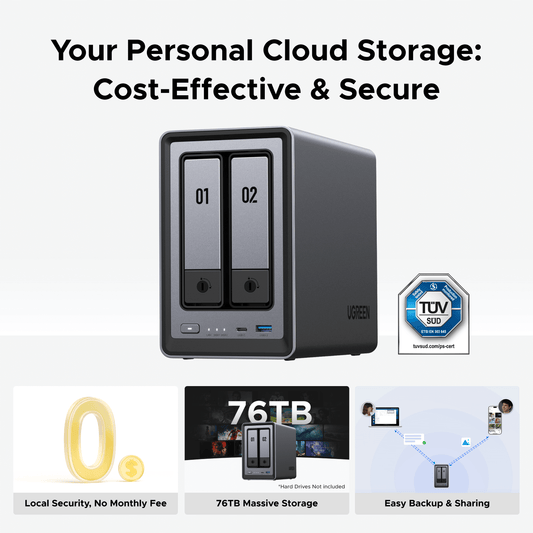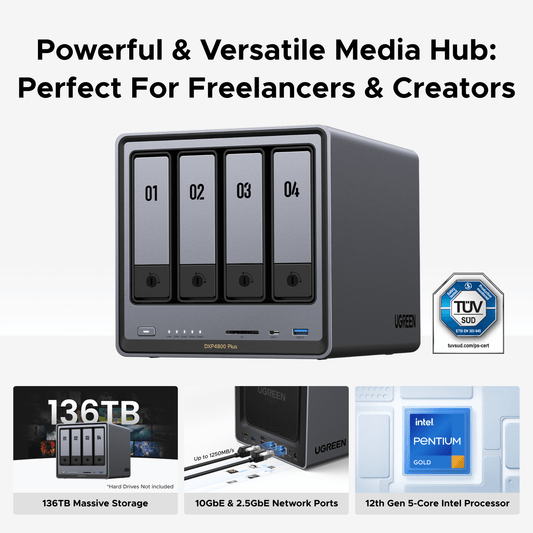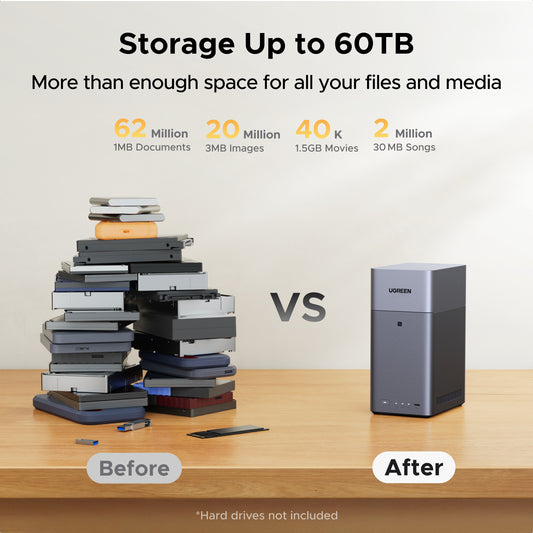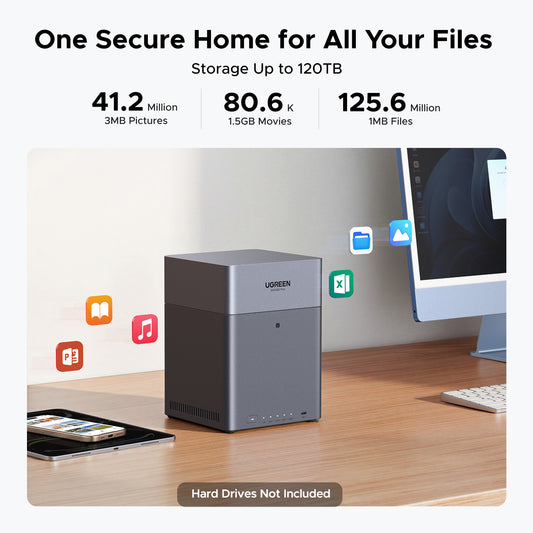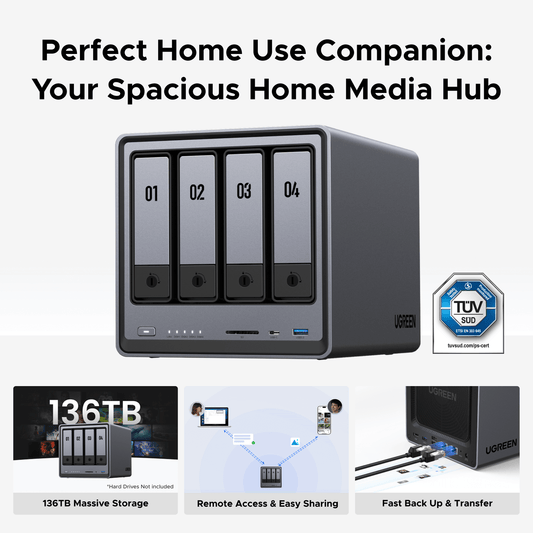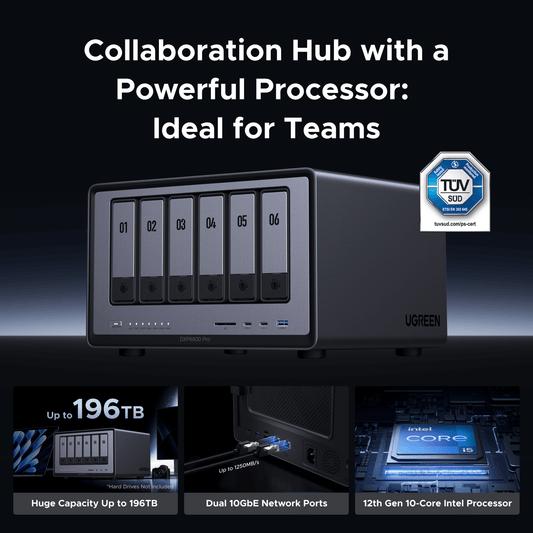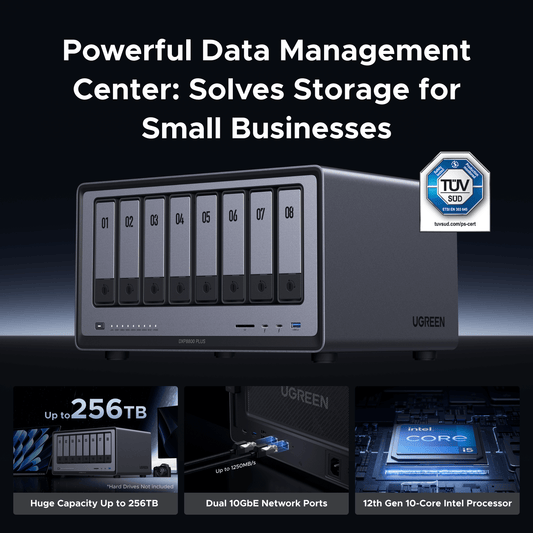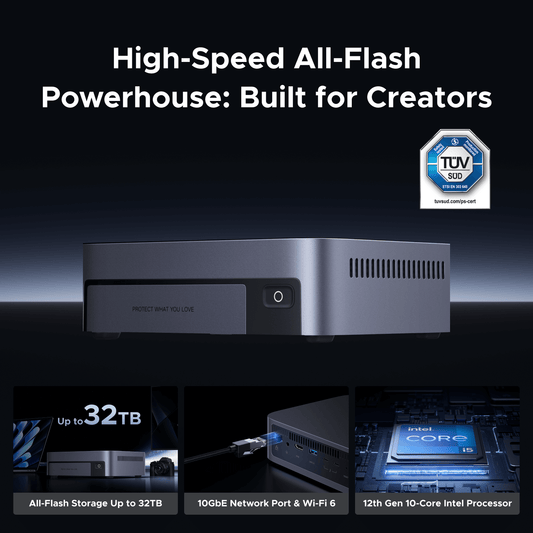UGREEN NASync
Your Data, Your Home, Your Rules.

Your Media. No Subscriptions. No Limits.

Create fearlessly. Store securely. Work at lightning speed.

Stop Paying Rent.

Frequently Asked Questions About NAS Storage
For a seamless Plex experience, prioritize a NAS with a high-performance processor, hardware transcoding support, and ample RAM. Find the top step-by-step instructions for setting up Plex on a NAS here.
Minimize NAS noise by placing it on vibration-dampening pads, using low-RPM HDDs (e.g., WD Red Pro), and ensuring proper ventilation. Silent fan modes and SSD upgrades also help. See our step-by-step quieting guide.
Most home NAS units use 15-30W under load, varying by drive count and CPU efficiency. Use ENERGY STAR-rated models or SSDs to cut costs. Calculate your NAS energy use here.
Top apps include Plex for streaming, Docker for virtualization, and Syncthing for backups. PhotoPrism and NextCloud add photo/organization tools. Discover 7 must-have NAS apps.
Network-attached storage (NAS) is a dedicated file storage solution that connects to a local area network (LAN), allowing multiple users and devices to access and share files seamlessly. It combines hardware and software with protocols like NFS, SMB, or AFP to enable centralized file sharing. NAS devices, which can be scaled up by adding more storage drives, often support redundant storage configurations like RAID for data integrity. Managed through a browser-based utility, NAS systems provide fast, secure, and reliable storage services, making them ideal for both home and enterprise environments where efficient file sharing and data management are crucial. Read more: What is NAS Storage?
NAS devices connect to your network via Ethernet or Wi-Fi, creating a local area network (LAN). They use file-sharing protocols like NFS and SMB/CIFS to allow multiple users to access stored data simultaneously. See more: How Does NAS Work?
Yes, you can access your NAS storage remotely through several methods, each with different levels of security and ease of use:
VPNs
Most secure method using either built-in NAS VPN services or router VPN capabilities.
- Pros: Highest security level
- Cons: More complex setup
Port Forwarding
Direct connection method that requires router configuration.
- Pros: Fastest connection speeds
- Cons: Requires technical knowledge, potentially less secure if not properly configured
The best method depends on your needs: choose VPN for security, or port forwarding for speed.
NAS-specific hard drives, such as WD Red or Seagate IronWolf, are recommended for their reliability and performance in always-on, multi-user environments. For more, check out: What Drives Should I Use for a NAS?
NAS offers faster local access, one-time costs, and complete control over your data, while cloud storage provides off-site backup and easier remote access. Read more: NAS vs Cloud Storage.
RAID (Redundant Array of Independent Disks) is a technology that combines multiple drives for improved performance and data protection. It's crucial for ensuring data redundancy in NAS systems.
Yes, NAS devices can install and run media server applications like Plex, Emby, and Kodi. Plex is widely used,offering both free and premium features for streaming media to various devices. Emby provides similar functionality with better Kodi integration, while Kodi works as a media player accessing your NAS files directly. The performance of these applications, especially for transcoding, will depend on your NAS's hardware capabilities. For optimal performance with 4K content or multiple simultaneous streams, consider the DXP4800 Plus with its 12th generation 5-core Intel processor.

